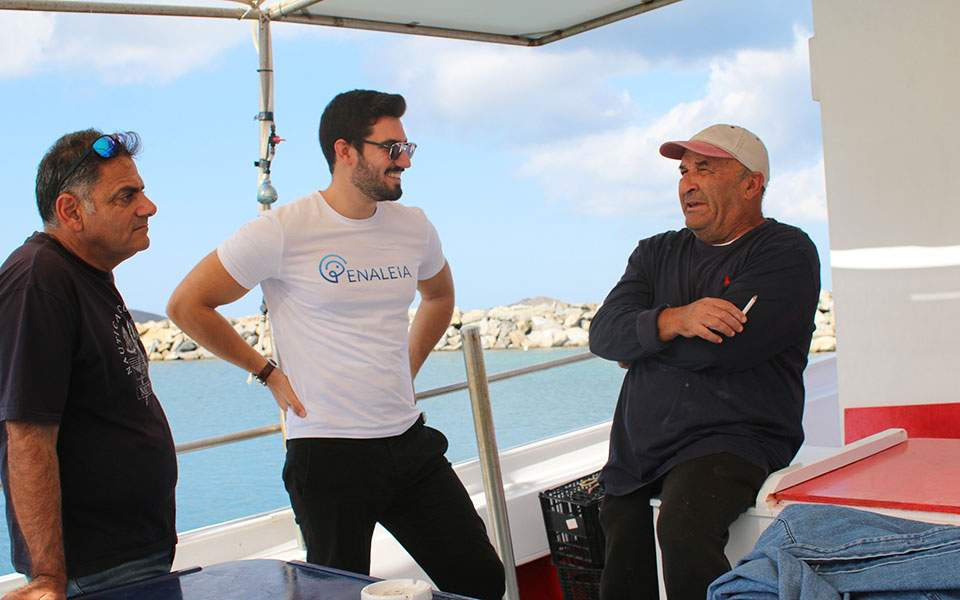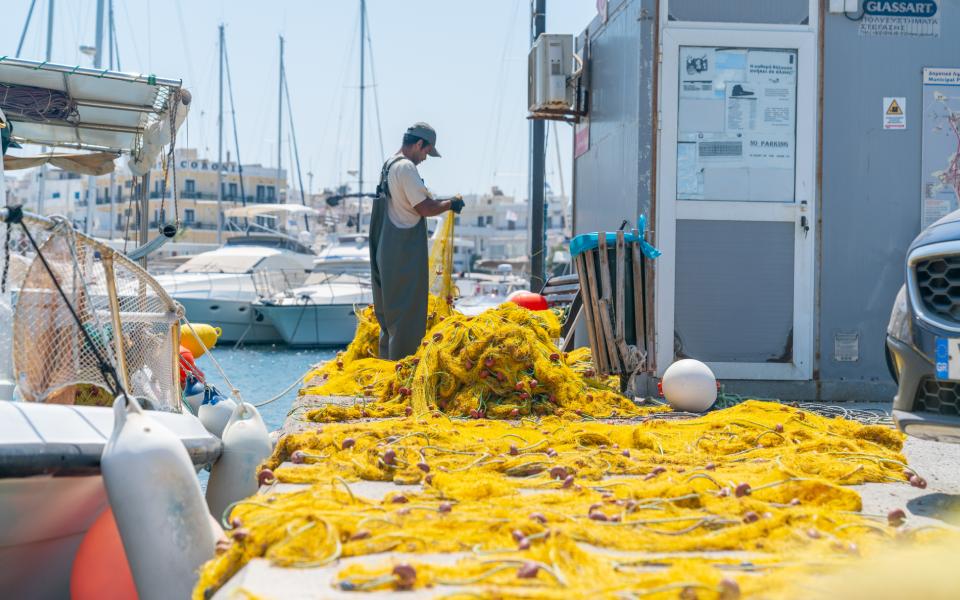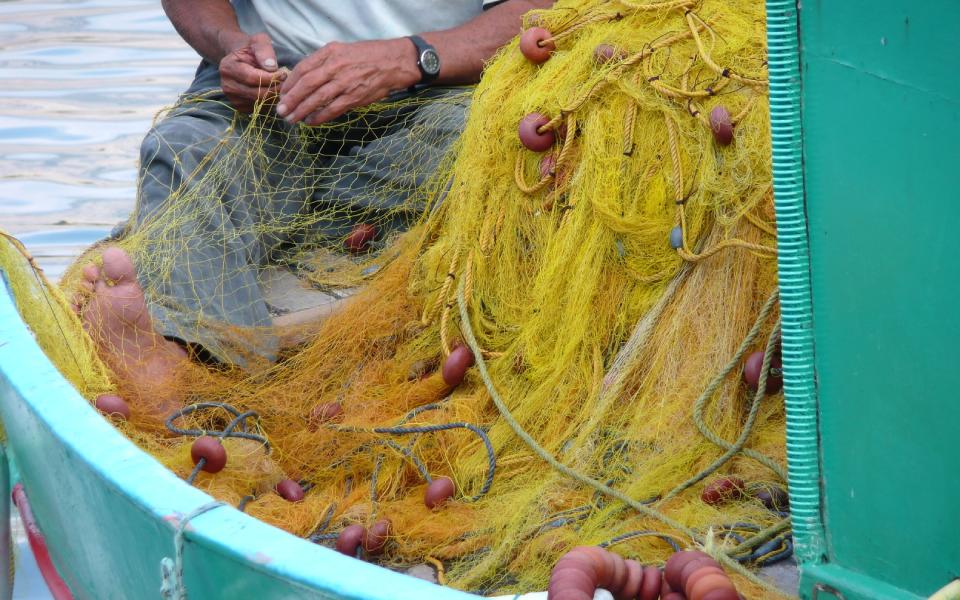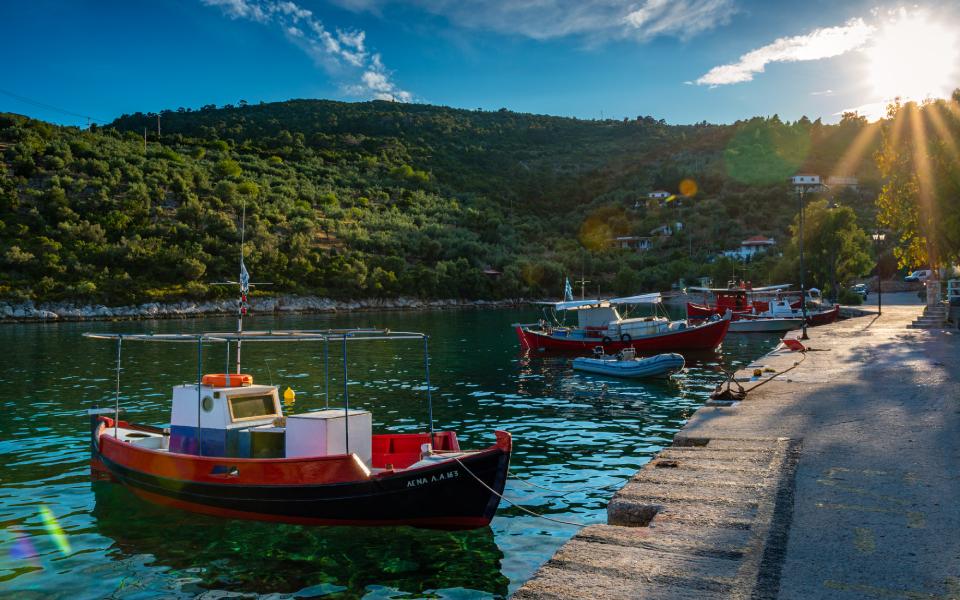Giannis Athinaios recalls a summer day last year, and how, as he came back from work, he felt a sort of guilt. “I’d had such a blast that morning, such fun, and I’d met such nice people that I thought ‘How can I call this work?’ It was strange.”
Well, this is what happens when the stars finally align and you find yourself doing the things you love, the things you have a passion for in life. For Athinaios, his passions are the sea and good company – and fishing tourism combines the two.
Athinaios got into fishing tourism four years ago – he was one of the first in Greece to do so. Although he’d been earning a good living as a commercial fisherman for many years, the lifestyle had started to wear him down, and he was looking for a change.
“Considering I spoke several foreign languages, I always thought I could do something that combined my job with tourism,” he says.

In 2015, the legal framework for fishing tourism was established, allowing professional fishermen to welcome clients on their boats for recreational fishing or simply as passengers. Athinaios immediately expressed his interest.
“Over the years, catches had been declining, and demand had dropped due to the economic crisis. But most of all, I couldn’t take the lack of sleep at night anymore, or the stress brought on by worrying about whether the moon would be out, or if we’d have a storm, or if a turtle or a dolphin might damage the nets.”
Today, things have changed: encounters with such marine life are good for business. “Tourists are thrilled by the experience,” Athinaios says. They’re also excited to be Greek fishermen for a day.
“It’s something they couldn’t access any other way. They see how the fish come out of the sea, they understand how valuable it is, they understand it needs hard work. They hang on your every word when you tell them stories about storms and about record catches. But I have a great time, too, I feel like I’m on an outing with them. What’s more, I go to bed and wake up at normal hours now.”

© Shutterstock
While Athinaios was one of the first to make the transition from commercial fishing to fishing tourism, he’s by no means the only one to have done so. “Those who decide to take this small career turn generally come out ahead,” says Anni Mitropoulou, director of the Cyclades Preservation Fund, which collaborated with Enaleia, a social enterprise that founded Greece’s first school for fishermen, and the Costas M. Lemos Foundation to launch an educational course on sustainable fishing and fishing tourism for professionals titled “Fish Smarter”.
The aims of the course are to increase coastal fishing to relieve pressure on already reduced non-coastal fish stocks, to keep the industry healthy by attracting and retaining commercial fishermen, to increase fishermen’s incomes, and to boost local economies by creating new jobs and by making destinations more attractive to tourists.
“They don’t have to change jobs or dismantle their caiques [the EU provides owners of these traditional Greek fishing boats a payment to destroy them in an effort to reduce overfishing] – which would haunt them, as their vessels become, they say, like members of their family – in order to get the much-desired compensation in order to feed their families.
“Instead, all they have to do is to ‘open’ their vessels, take with them an adult family member or someone else who can speak foreign languages, and, at the end of the day, they can keep making a profit from an activity they know and love. They fish less, they don’t have to work as hard, they get more pleasure out of it, and they can leave the fish the time to grow and reproduce, as they don’t have the need to haul in large quantities in order to make ends meet.”

© Shutterstock
According to studies, 10% of the tourists who visit Greece are interested in recreational fishing. “They want to discover the different types of fishing, to see how the fish are caught, and to learn how to cook and enjoy them,” says Lefteris Arapakis, co-founder of the social enterprise Enaleia, set up in 2016 to help achieve his vision of a sustainable marine ecosystem.
“A fisherman can increase his income while decreasing his fishing effort. Instead of catching 50-100 kilos of fish a day, he can catch 5 kilos to cook for his clients. At the same time, visitors can see something of Greece’s traditional ways.”
Of course, this year is different. Many fishermen on the islands have been impacted negatively, unable to sell their fish in light of restaurant closures and a lack of tourism to date. Those who practice fishing tourism suffered, too, as they had no clientele. Now they can’t wait to see people hopping on and off their caiques over the summer months.
“At the same time, however, there’s a significant element of risk, as recreational fishermen are often over 65 years old and are afraid to come into contact with large groups,” Arapakis says. “This year’s season is a good opportunity for fishermen to get the authorization, to get the available funding and to complete their training. It will be the summer of preparation.”
This article was first published in Greek by kathimerini.gr











